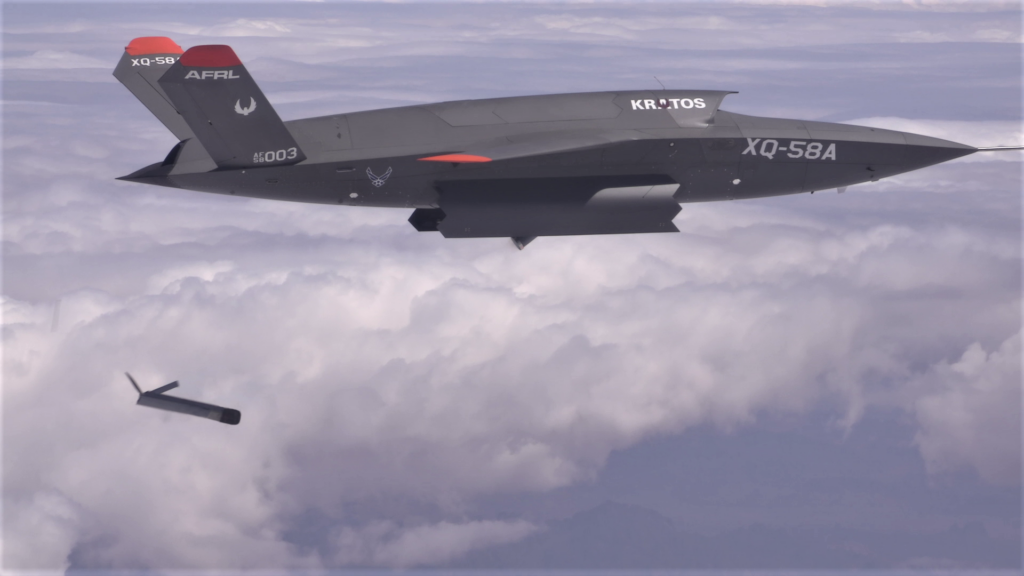
Pictured above is the Kratos XQ-58A Valkyrie. Late last year, the 40th Flight Test Squadron at Eglin AFB, FL, took possession of the first of two government-owned XQ-58As. The aircraft is a low-cost, high-performance uncrewed air vehicle that is rocket-launched off a rail system and is controlled from a ground station or airborne fighter by an onboard computer system that is capable of determining the best flight path and throttle settings to comply with commands, the U.S. Air Force said. (Photo: AFRL)
The upcoming U.S. Air Force fiscal 2024 budget request is to include about a dozen new start programs that will require congressional authorization, and Air Force Secretary Frank Kendall told reporters on March 7 at the Air & Space Forces Association conference in Aurora, CO, that he is concerned that the toxic political division on Capitol Hill may impede the establishment and progression of such programs.
Such new starts would include the Next-Generation Air-Refueling (NGAS) tanker and a buy of perhaps 1,000 Collaborative Combat Aircraft (CCAs) to be employed by 200 Next Generation Air Dominance (NGAD) manned fighters and 300 Lockheed Martin F-35As.
The Air Force has about 300 F-35As and has planned to buy 1,763.
The 300 F-35As for deploying CCAs “is a reasonable target point,” Kendall said on March 7. “It’s somewhat arbitrary. I don’t know what the ultimate inventory of CCAs would be or exactly what the ratio would be. We’re starting out with the intent to have at least two per fighter working together, but it could be more than that. It’s gonna be a question of what the technology is and what works out best operationally.”
The Air Force fiscal 2024 budget is to include funding for operational unit experimentation with uncrewed, autonomous drones to develop CCA operational concepts and training.
“We want to get as much operational combat capability as we can out of this [CCA] concept, but, if we shoot too far, we’re gonna have a program that gets caught in schedule and cost overruns,” Kendall said. “We’re assessing the technology. We’re gonna do this competitively..I wanna push the technology without pushing it too far. That’s something we’re gonna have to figure out as we go along.”
Kendall warned against the Air Force “gold plating” service requirements, “which has gotten us in trouble in the past” on other programs.
This article was originally published by Defense Daily, a sister publication of Avionics International. It has been edited. Read the original version here >>